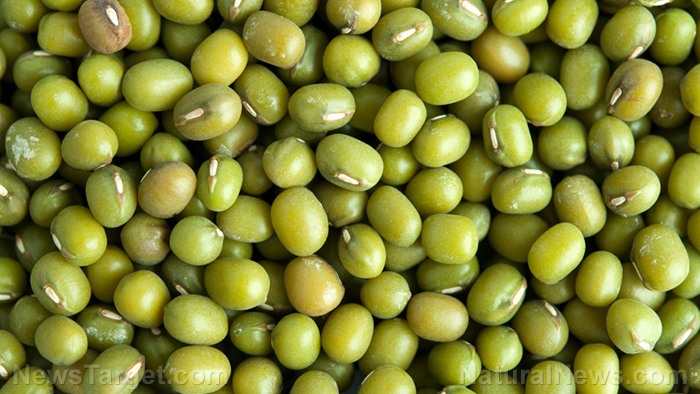What you need to know about glucomannan and its usefulness as a weight loss supplement
02/22/2019 / By Carol Anderson

There are many supplements appearing in the market claiming to be the next best dietary aid. Adding to the long list is the natural dietary fiber called glucomannan. It is sourced from the roots of the Japanese elephant yam or Konjac and is commonly used in Asia as a food thickener or medicine.
Aside from being a weight loss supplement and a food emulsifier, glucomannan is also known for its capacity to absorb great amounts of water; it can store up to 50 times its own weight which allows it to form a gel-like consistency when dissolved.
So how does glucomannan help with weight loss? For one, glucomannan is said to have a very low calorie content. It also leaves a person feeling full or satiated which helps reduce food intake and cravings for unhealthy foods. Moreover, it helps cut off sugar cravings, slows digestion, and reduces the absorption of protein and fat.
In addition, this supplement acts as a natural prebiotic; it feeds your healthy gut bacteria, which in turn supports your overall digestive health. When your gut bacteria digest glucomannan, they produce a short-chained fatty acid called butyrate, which is known to improve insulin sensitivity and protects against fat gain.
As a natural prebiotic, glucomannan can help lower stress response, promote better hormonal balance and support better immune function. (Read: Does Garcinia cambogia really help obese people lose weight?)
Studies on glucomannan
Several studies have been conducted on glucomannan involving its effect on body weight. One study involved 53 overweight participants, aged between 18 and 65. They were divided into two groups wherein the first one was given 1.33 g of glucomannan to be taken one hour before meals. Meanwhile, the other group received placebo capsules to be taken in the same schedule. The experiment was done over an eight-week period.
According to results, glucomannan did nothing significant to help weight loss. In fact, there wasn’t much of a difference between the two groups which led the authors to conclude that the dietary fiber is not effective.
However, in a different study, 176 participants were provided a balanced 1,200-calorie diet. The volunteers were divided into two groups; one group took glucomannan while the other had no additions to their diet. The groups were observed for five weeks.
The findings revealed that the glucomannan group lost an average of 1.7 pounds per week. This particular study hinted that the dietary fiber is more effective when taken before meals and is partnered with a low-calorie diet.
Other health benefits of glucomannan
More than just being a good supplement for weight loss, this soluble fiber is also said to help lower the risk of developing heart disease. According to one study, glucomannan can:
- Lower total cholesterol by 19 mg/dL (0.5 mmol/L).
- Lower LDL cholesterol by 16 mg/dL (0.4 mmol/L).
- Lower triglycerides by 11 mg/dL (0.12 mmol/L).
- Lower fasting blood sugar by 7.4 mg/dL (0.4 mmol/L).
Glucomannan is considered safe and has worked well in some people. However, it’s best to consult your healthcare provider first before trying any supplement, and to start with small doses to check how your body reacts.
It’s also best to check with your healthcare provider before increasing your intake of dietary fiber – or any supplement for that matter; over-consumption of fiber may prevent the body from absorbing some essential vitamins and minerals.
It’s recommended to take glucomannan and other fiber supplements with one to two glasses of water to prevent choking or throat blockage. This occurs when the supplement expands even before reaching the stomach.
Visit SupplementsReport.com to learn more about dietary fiber and other supplements that support digestive health.
Sources include:
Tagged Under: balanced diet, dietary fiber, digestive health, glucomannan, gut health, low cholesterol, low-calorie diet, nutrition, prebiotics, supplements, weight loss, weight management




















